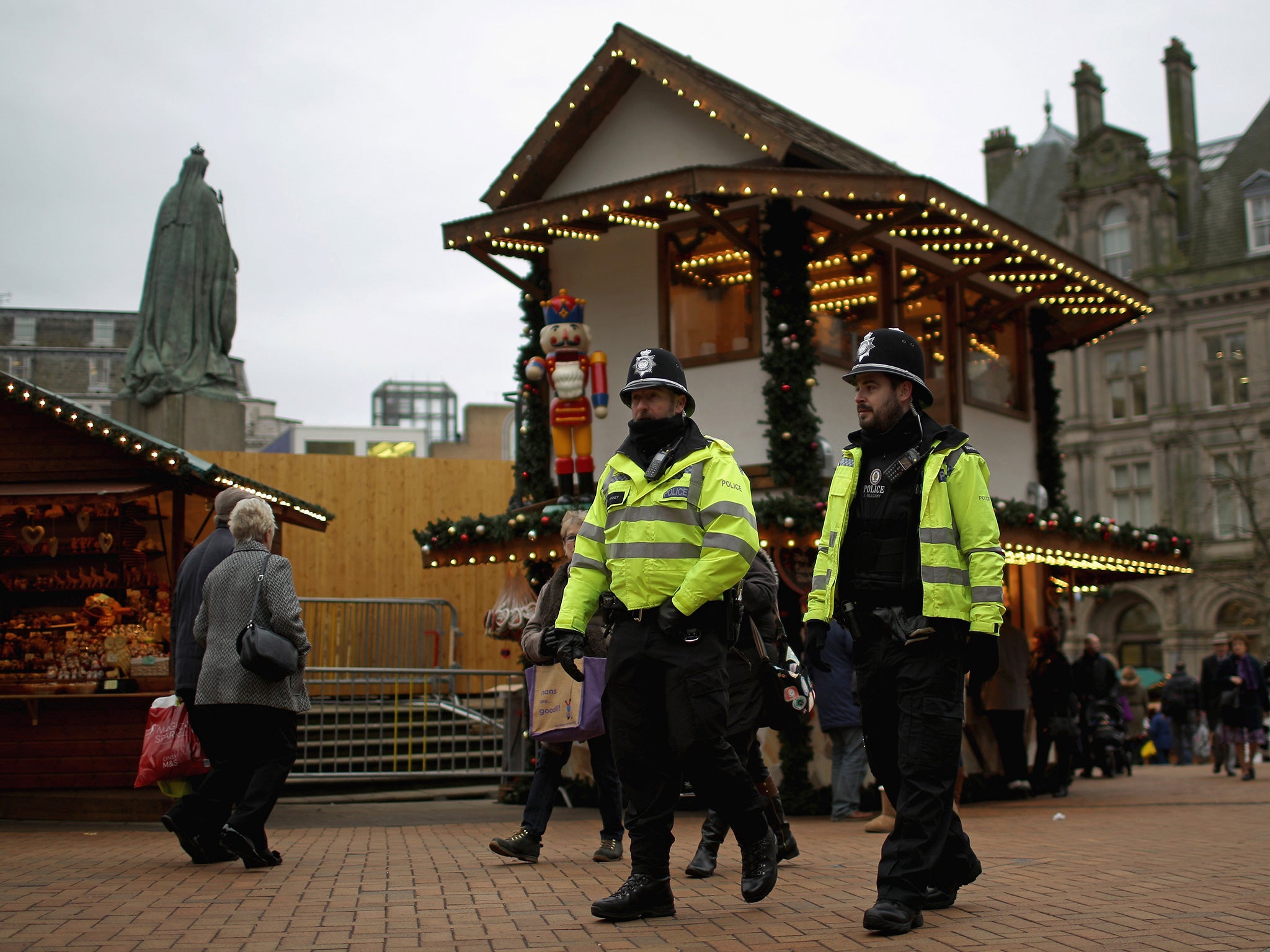Police patrols disappearing as number of officers cut by a quarter in last five years, new figures say
The cuts are the equivalent of getting rid of every single police community support officer in 15 of the 39 police forces across England

Police patrols are disappearing from streets across England, with the number of officers cut by a quarter in the past five years, according to new figures released. The scale of the loss is part of a wider picture of cuts which has resulted in policing being “on its knees,” warned the Police Federation.
An analysis of Home Office statistics, by Unison, reveals that more than a thousand police community support officer (PCSO) jobs in England have been cut every year since 2010. PCSOs make up the majority (75 per cent) of neighbourhood policing teams, but some 4,430 posts have been lost since 2010. This is a 27 per cent reduction in the total number, which has fallen from 16,200 to 11,770 in the past five years.
The cuts are the equivalent of getting rid of every single PCSO in 15 of the 39 police forces across England.
Commenting on the figures, Dave Prentis, Unison’s General Secretary, said: “People feel safer when there is a visible and reassuring police presence on the beat. But four years of savage cuts to PCSOs mean that one in four police patrols have been withdrawn from our neighbourhoods since 2010.” He added: “This government has shown no interest in protecting frontline police despite its promises to do. Ministers’ obsession with cuts is now placing the public at greater risk. With fewer PCSOs, vital evidence and intelligence gathering will be lost and fewer crimes solved.”
Although four forces (Nottingham, Leicestershire, Lincolnshire, and Suffolk) been able to juggle their budgets to actually increase the number of PCSOs slightly, every other force in England has cut staff numbers. London has been the hardest hit, with the Metropolitan Police reducing its number of PCSOs by more than half (58 per cent). While in Surrey, Warwickshire, and Essex, numbers have been slashed by more than a third.
The situation is different in Wales, where the Welsh government has protected neighbourhood policing and PCSOs from cuts. In Scotland, where there are no PCSOs, police officer numbers have not been cut but around 2,000 civilian police jobs have been lost in the past two years according to the Scottish Police Federation.
In a statement, Steve White, chair of the Police Federation of England and Wales, said: “Policing is on its knees and cannot take any more cuts.” He added: “If we are to deliver a functioning police service that is capable of protecting the public the wanton destruction of police numbers that has gone on over the last five years must stop. 17,000 officers have gone. 17,000 police staff have gone.”
Mr White says he is regularly contacted by officers “who are at breaking point – who are unable to deliver the service they want to, who work on shifts with the nearest back-up miles away. They – and our police staff colleagues - have to choose which victims they can see and which ones have to wait – how fair is that? At the heart of it all it’s the public who suffer and communities that will bear the brunt.”
Subscribe to Independent Premium to bookmark this article
Want to bookmark your favourite articles and stories to read or reference later? Start your Independent Premium subscription today.
